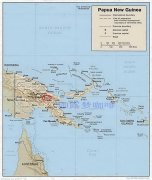Sumatran civet coffee, the most expensive coffee in the world.
This rare coffee is called Kopi Luwak, also known as Sumatra civet coffee, and has undergone a unique fermentation process that has a different flavor from regular coffee. Traditionally, coffee fruit is washed or sun-treated to remove the skin, pulp and sheepskin layers before finally extracting the beans. However, Luwak uses natural fermentation in vivo to extract the beans, thus having a special flavor. In the mountains of Indonesia, there is a kind of civet named Luwak who likes to eat coffee fruits with many paddles, but the hard coffee seeds cannot be digested and are discharged with feces. Indonesians find that coffee beans fermented by civet intestines are particularly thick and fragrant, so they collect civet feces, sift out coffee beans and brew them to drink. Due to the scarcity of production, the price remains high. M.P. Mountanos, the company that first introduced Rowak coffee to the United States, points out that when he first heard about this internally fermented coffee, he thought it was a joke in the industry and didn't take it seriously. Later, he saw a special report on Rowak coffee in National Geographic magazine, and it took him seven years to find a stable source of supply and start introducing small quantities into the United States.
How does this coffee taste? According to coffee experts, most luwak coffee is low-altitude robusta beans, which is enough to prove that civets prefer robusta beans to high-altitude arabica beans. Generally speaking, Indonesian coffee has an earthy and herbal flavor, and its consistency is also the highest in all continents, but Luwak's earthy flavor and consistency are stronger, its consistency is almost close to syrup, and its aroma is very special. If you don't like Indonesian coffee in the first place, you will definitely hate Luwak coffee. If you prefer the earthy flavor of Indonesian aged beans or Indian wind beans, you may like Luwak coffee with similar flavor.
Experts who have tasted luwak coffee offer polarized comments. Some people compare it to the best coffee in the world. It is quite thick. The taste is unusual. It is difficult to describe it. It has a bit of earthy smell. It has a slightly choking taste and a visceral taste. It stays in the mouth for a long time until the last drop. Some people say it's hard to swallow, it's a gimmick, it's not worth spending money on stinky coffee. Yet some people pay $10 for a cup of Rowak coffee. Montanas sold only 30 pounds last year, suggesting that the coffee is still in its infancy in the United States and more popular in Japan.
The Indonesian civet has a gland near its sexual organs that secretes milky oil, which has long been a valuable ingredient in perfumery. Even Shakespeare's King Lear has a line: "Please give me some civet oil to stimulate my inspiration." However, too much can be pungent, and civets sometimes emit this oil to defend themselves.
Important Notice :
前街咖啡 FrontStreet Coffee has moved to new addredd:
FrontStreet Coffee Address: 315,Donghua East Road,GuangZhou
Tel:020 38364473
- Prev

Organic coffee from Papua New Guinea
Organic coffee (Purosa Estate M10 JAS Organic) in Papua New Guinea the seeds of coffee from Papua New Guinea were introduced from Jamaica, Kenya, Tanzania and other countries more than 70 years ago in the 1930s. Formal planned cultivation since the 1950s; the main producing areas are Groca and Madha in the central mountains. This Polosa.
- Next

Why coffee beans have such a long name?
Why coffee beans have such a long name? Why is there a single item, deep roast and Italian style of coffee? Where did so many names come from?
Related
- Beginners will see the "Coffee pull flower" guide!
- What is the difference between ice blog purified milk and ordinary milk coffee?
- Why is the Philippines the largest producer of crops in Liberia?
- For coffee extraction, should the fine powder be retained?
- How does extracted espresso fill pressed powder? How much strength does it take to press the powder?
- How to make jasmine cold extract coffee? Is the jasmine + latte good?
- Will this little toy really make the coffee taste better? How does Lily Drip affect coffee extraction?
- Will the action of slapping the filter cup also affect coffee extraction?
- What's the difference between powder-to-water ratio and powder-to-liquid ratio?
- What is the Ethiopian local species? What does it have to do with Heirloom native species?

